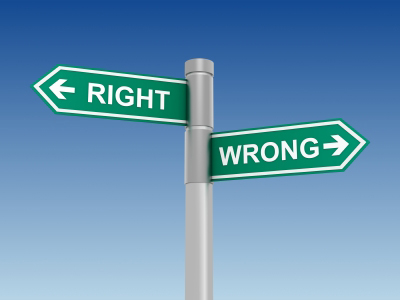In the contemporary political arena, the general public most
often use the language of human
equality. This is evidenced by political advances like pro same-sex marriage
advocates' appeal to equality in arguing for their cause. It appears that many
speak of equality largely in a materialistic sense (philosophical worldview
that believes human beings as mere matter), not in terms of metaphysics. The modern
concept of equality historically rose from the Christian philosophy. Without it
the concept of equality fails to make sense. To attempt to make sense of it
once more, to examine what human equality truly is and to achieve a better understanding
of it, is the aim of this piece.
Let us examine how a contemporary person would see human beings
as equal by extracting from various modern political platforms:
1.
People have equal physical and/or intellectual capacities.
2.
People have equal physical and/or intellectual abilities.
3.
People have equal political and/or economic power.
4.
People have equal legal rights.
5.
People are composed of equal metaphysical substance
(soul).
Now, it is apparent, ranging from same-sex marriage to the
institution of socialism, more people appeal to numbers 1 to 4 when dealing
with political matters; many do not use the fifth sense of equality for religious
arguments are jeered upon in modern politics. Regardless, to have an
understanding of equality, one must see to it whether the mentioned criteria
make sense.
1) The first sense the notion of equality is used, as it should be self-evident, does not make sense. People do not possess equal physical or intellectual capacities; a healthy man of 30 and a challenged man of 30 have vast physical and intellectual capacities.
2) The second sense the notion of equality is used, like the first, also fails to make sense. One just has to meet with a handful of individuals of one's own gender and age to see that some will be able to solve math problems that some cannot.
3) The third is the primary criterion that people use to argue for their cause. However plausible it may appear, its appearance is but an illusion. Though it is true that all can have defined political and economic potential created by the legal system, it is impossible them to have equal power because of the same reason mentioned in criterion 2.
4) The fourth also fails to make sense in that legal rights are human creations; modern liberal governments create rights as they see fit. A clear example would be this: In an absolute monarchy, there is no such thing as voting right whereas a democracy does. The concept of rights is a mere extension of human desires. It follows that, since legal rights do not exist apart from human beings, it has no authority of establishing true equality. The best legal equality does for us is create an illusion that gives a false sense of equality.
5) The fifth, by presupposing a metaphysical substance, or soul, that exists apart from physical substances that compose our body and our organs, it can be argued that all human beings are equal. Christianity is a perfect example of this view. In Christian theology, all human souls are created in God's likeness, that is to say human beings are to a certain degree capable of what God is capable of. It further teaches that all human souls are created equally in all respects. Only the accidental properties reflected by the perceivable world (place and time of birth, genes, circumstances of growth, etc.) differentiate a soul from another. It follows that, though accidental properties can be vastly dissimilar between different persons, all are equal in a sense that their souls are equal before God. Christianity further teaches that all human souls share the exact same potential: entering godhood by way of purifying their souls so that they reach their full potential in heaven.
1) The first sense the notion of equality is used, as it should be self-evident, does not make sense. People do not possess equal physical or intellectual capacities; a healthy man of 30 and a challenged man of 30 have vast physical and intellectual capacities.
2) The second sense the notion of equality is used, like the first, also fails to make sense. One just has to meet with a handful of individuals of one's own gender and age to see that some will be able to solve math problems that some cannot.
3) The third is the primary criterion that people use to argue for their cause. However plausible it may appear, its appearance is but an illusion. Though it is true that all can have defined political and economic potential created by the legal system, it is impossible them to have equal power because of the same reason mentioned in criterion 2.
4) The fourth also fails to make sense in that legal rights are human creations; modern liberal governments create rights as they see fit. A clear example would be this: In an absolute monarchy, there is no such thing as voting right whereas a democracy does. The concept of rights is a mere extension of human desires. It follows that, since legal rights do not exist apart from human beings, it has no authority of establishing true equality. The best legal equality does for us is create an illusion that gives a false sense of equality.
5) The fifth, by presupposing a metaphysical substance, or soul, that exists apart from physical substances that compose our body and our organs, it can be argued that all human beings are equal. Christianity is a perfect example of this view. In Christian theology, all human souls are created in God's likeness, that is to say human beings are to a certain degree capable of what God is capable of. It further teaches that all human souls are created equally in all respects. Only the accidental properties reflected by the perceivable world (place and time of birth, genes, circumstances of growth, etc.) differentiate a soul from another. It follows that, though accidental properties can be vastly dissimilar between different persons, all are equal in a sense that their souls are equal before God. Christianity further teaches that all human souls share the exact same potential: entering godhood by way of purifying their souls so that they reach their full potential in heaven.
Let us gather what has been said and use it to envision a
practical case by touching on each criterion. The case to be used is gender
equality.
1) It is apparent that two genders are dissimilar in physical capacities. It can, however, make a strong case that genders are equal in a sense that they have equal intellectual capacities. But, however strong the case may be, it cannot account for particularities of a single human being. It cannot be used on other cases that deal with individuals with impartiality, failing to embody true equality.
2) Gender as a whole may be compared to the other. Yet it fails to account for each human being much like the first criterion.
3) A similar argument goes for the third. Power is dependent on one's own particular situation such as legal rights or capital that one possesses, not gender. The third criterion case cannot be used for the cause of gender equality.
4) If legal rights are created by society and are dependent on human existence, then it offers no true equality; genders may be said to be equal in a sovereign state, but it does not have the authority to decide and establish gender equality as an objective mandate. The best laws can do without a divine ordinance is to merely offer an illusion of gender equality.
5) Christianity teaches that all souls - male or female - are created in God's image and in His likeness; both men and women can enter the Kingdom of Heaven through grace. A Christian metaphysical argument, it appears, can provide a way by which we can solidify the argument for gender equality.
It appears, from what can be seen, the notion of human equality makes sense only when approached from the metaphysical angle, Christianity in particular. When approached materially the case for human equality falls apart. From what has been said above, it can therefore be concluded that Christianity is a necessary component when attempting to make sense of the concept of human equality.
1) It is apparent that two genders are dissimilar in physical capacities. It can, however, make a strong case that genders are equal in a sense that they have equal intellectual capacities. But, however strong the case may be, it cannot account for particularities of a single human being. It cannot be used on other cases that deal with individuals with impartiality, failing to embody true equality.
2) Gender as a whole may be compared to the other. Yet it fails to account for each human being much like the first criterion.
3) A similar argument goes for the third. Power is dependent on one's own particular situation such as legal rights or capital that one possesses, not gender. The third criterion case cannot be used for the cause of gender equality.
4) If legal rights are created by society and are dependent on human existence, then it offers no true equality; genders may be said to be equal in a sovereign state, but it does not have the authority to decide and establish gender equality as an objective mandate. The best laws can do without a divine ordinance is to merely offer an illusion of gender equality.
5) Christianity teaches that all souls - male or female - are created in God's image and in His likeness; both men and women can enter the Kingdom of Heaven through grace. A Christian metaphysical argument, it appears, can provide a way by which we can solidify the argument for gender equality.
It appears, from what can be seen, the notion of human equality makes sense only when approached from the metaphysical angle, Christianity in particular. When approached materially the case for human equality falls apart. From what has been said above, it can therefore be concluded that Christianity is a necessary component when attempting to make sense of the concept of human equality.





